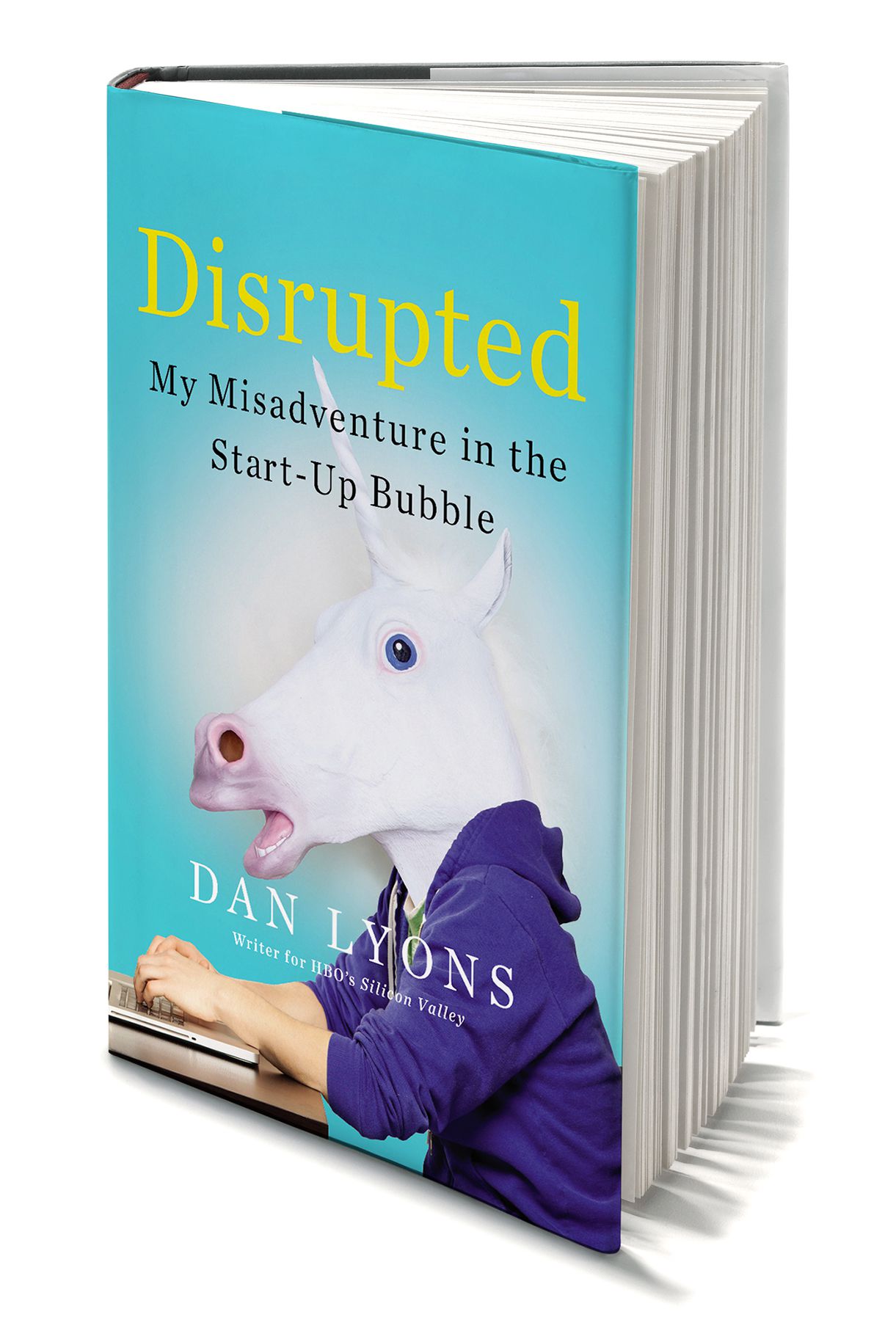Beware the litany of passive accusations
 Dan Lyons’ book Disrupted tars the whole startup business with the brush of his experience at HubSpot. One key element is to show that the rest of Silicon Valley is also corrupt with a recitation of all the recent sins of tech companies. Whenever you see a list like this, you should be skeptical.
Dan Lyons’ book Disrupted tars the whole startup business with the brush of his experience at HubSpot. One key element is to show that the rest of Silicon Valley is also corrupt with a recitation of all the recent sins of tech companies. Whenever you see a list like this, you should be skeptical.
Here’s a paragraph that he wrote about the tech industry (it’s on page 158 of the print copy). The passages shown here in bold are either passive voice or vague, qualified accusations.
Along with personal misbehavior there have been allegations of misbehavior at the corporate level. Facebook was accused of invading people’s privacy and made a settlement (admitting no wrongdoing) with the FTC. Path was caught using people’s personal information without their permission, and apologized. Zynga forced some employees to give back stock options just before the IPO. Apple has been criticized for using complex accounting structures to avoid paying taxing in the United States, for exploiting underpaid workers in China, and for colluding with Google to prevent poaching employees; in the collusion case, the two companies settled with workers who were suing for lost wages. An Uber executive reportedly threatened to spy on journalists. Groupon’s initial paperwork used misleading financial metrics that the Wall Street Journal called “financial voodoo,” and which the SEC forced them to change. In 2012 Groupon had to restate its financial results after under-reporting its losses, attributing the mistake to “material weakness in its controls.” The two co-founders of Secret, a mobile app maker, raised $25 million in finding, put $6 million in their own pockets, and then nine months later shut down the company.
That is a lot of accusations all in one place. It’s damning. But is it fair? Let’s keep score.
- Proven wrongdoing: Path, Zynga, Groupon (twice)
- Accusation of wrongdoing, but no admission of guilt: Facebook, Apple/Google, Uber.
- Criticism, possibly bad behavior, but no wrongdoing: Apple (twice), Secret
It’s no coincidence that there’s so much passive voice in here — when you’re citing accusations, you can fit a lot more in if you don’t have to identify who is doing the accusing. The result is a sort of “wall of wrongdoing” that washes over you, leaving you feeling like something really bad is happening.
There is a real problem in Silicon Valley, but you can’t do it justice by packing accusations willy-nilly into a paragraph.
There’s a lesson here, too, in politics. I see the same thing happening with criticism of political figures including Donald Trump and Hillary Clinton. You can do this to package up everything that Wal-Mart does wrong, too. If a reader wants to believe a company or individual is corrupt, they’ll lap this stuff up. With Google at your disposal, it’s pretty easy to build a paragraph like this.
That doesn’t make it right or balanced.
Don’t write like this. And if you read a litany of accusations, your bullshit detector should go off. Before you make a judgment, try to separate the passive accusations and “alleged” violations from actual wrongdoing.
(Note: my original review, including my disclaimer about my relationships with Dan Lyons and people at HubSpot, is here.)
Josh, thank you – you uncovered something that’s been troubling me greatly since I finished “Disrupted”. Dan’s writing started so strongly – he’s a really good writer; the book was a really good read (and quite apropos to my personal situation, so: resonance was found quickly here).
I devoured the first 80-or-so pages the first evening, and I told everyone that I saw the next day that they HAD to read this book, it is REALLY telling, it’s a GREAT read.
Somewhere around Chapter 20, things started to break down for me. I can’t put my finger on it; I’ve worked with many brilliant (and acerbic) people in my life, and I’m proud to call some of them my best friends. What broke the bridge for me, as a reader? The realization that a staggering lack of trust pervades this entire book. And therein lies the rub. Is there a lack of trust in general at HubSpot? Or was there simply a blinding lack of trust between Dan and his peers?
My gut says the latter. Because I believe that trust cannot exist in a world full of passive accusations. Dan did very little to foster trust with his peers; in fact, his general dislike for all of them was called out in great detail in the book, in his own words. Nobody in the org was beyond the reach of Dan’s dislike, including the guys who hired him.
By the time I got to the Epilogue… I was done with the whole “Disrupted” experience. A veteran technology writer who gets “hacked” over a period of a year and – despite his justified paranoia – writes it off as glitches in the Matrix? Oh, my. How fracking ridiculous.
Dan, you should have walked out of HubSpot at T+60 minutes on that first morning – the day that they forgot that they had hired you. On my way to the car, I would have been dialing Halligan’s cell, asking “WTF?”. But then there would have been no book, right?
Thanks for letting me vent, Josh. I’ll still recommend “Disrupted”, but with reservations… from now on, I’m going to call it a “self-fulfilling prophecy”.